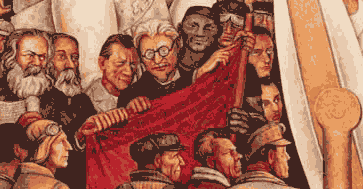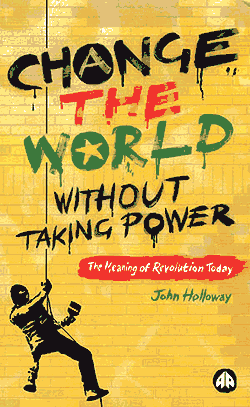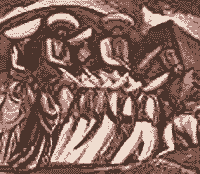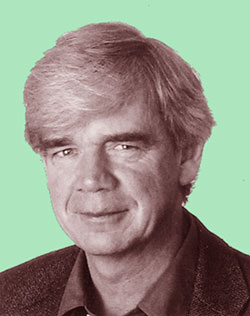|
from 19 may 2002 blue vol II, #34 |
| Feature Archive |
|
|
by Robert Allen
It is a world where, in 50 years, the global population has doubled, the global economy has nearly quintupled, demand for grain has tripled, seafood consumption has more than quadrupled, water use has tripled, demand for beef and mutton has tripled, firewood demand has tripled, demand for lumber has doubled, paper use has increased six–fold, and fossil fuel use has nearly quadrupled.
It is a world where the killing, buying and selling of wildlife (animals, plants and their derivatives) is worth $100 billion, where the felling of trees is worth $40 billion, and where fisheries are worth $12 billion.
It is a world where synthetic chemicals are threatening the fertility, intelligence and survival of humanity by mimicking the hormones that regulate our development. This hormonal damage, many scientists insist, is the cause of the 50% drop in the human male sperm count since 1940, the two–fold increase in breast cancer among women since 1960, the three–fold increase in testicular cancer and two–fold increase in prostate cancer since the 1940s, the phenomenal rise in endometriosis (a disease virtually unknown outside the 20th century – which now affects five million American women) and the increasing number of children born with abnormalities.
It is a world where, in 1998, drought devastated 54 countries while 45 countries suffered from floods – natural disasters which are increasing year by year.
It is a world where it has become a crime to protest about the dehumanization of society, where it has become a joke to claim that another world is possible and where the voices of millions of people have no resonance. In Argentina, Spain, India, Italy, USA, France, Australia, Indonesia, Greece and South Korea millions of people have taken to the streets to voice their dissent – and it seems we don't know who they are or what they want.
Journalists and politicians tell us they are anarchists and communists and hippies, members of the anti–globalization movement, wasters who dream of utopias of the mind.
What is this anti–globalization movement, you ask. It is a movement, some argue, that grew out of the eco–defense and Do It Yourself movements, which itself grew out of the failure of the environmental, peace and social justice movements. Others will tell you that the 'No Global' movement has grown out of the failure of communism, Marxism, socialism and trade unionism, of the failure of class struggle. Others will say it was a natural progression from the diverse and disparate anti–imperialist movements in the struggle for self–determination in the denuded jungles of central and south America and in the delta regions of India's urban slums.
It would be fairer to say that these protests represent a movement of diverse ideologies. It's certainly not a movement of any particular group of people. The reality, anyone who takes the time to seek out its roots will find, is that this movement grew from all our struggles and by its very definition is a global struggle against power and labor.
When the People's Global Action collective was founded in 1998, the term anti–globalization was hardly known. It did not describe or define the people who actively oppose capitalism and the globalization of labor and power. No affirmation was given to their struggles.
And while the French pour onto the streets in their millions to protest against a political system that can place a fascist leader on the throne of power or the Argentinean people can overthrow successive governments because the leaders have abused their power, the voices that we hear are not those of the people, they are the voices of the bourgeois intelligentsia who proclaim themselves the leaders of a disparate movement that has no leaders. So it is no wonder the anti–globalization movement has a bad name.
It is being badly called by people who do not understand the impetuousness behind the protests, demonstrations, occupations, vigils and insubordinate actions, people who tell us it is a movement without a plan or a strategy, people who are looking after their own selfish interests.
According to Holloway "all rebellious movements are movements against invisibility" and this is a struggle of non–identity, of the invisible, "of those without voice and without face". At a simple level it is about our own dignity and the "refusal to accept humiliation, oppression, exploitation, dehumanization".
This is what we appear to do everyday, whether we are bosses or workers or idle. "It is hard to believe that anyone is so at home with the world that they do not feel revulsion at the hunger, violence and inequality that surrounds them," writes Holloway. "It is much more likely that the revulsion or dissonance is consciously or unconsciously suppressed either in the interests of a quiet life or, much more simply, because pretending not to see or feel the horrors of the world carries direct material benefits."
Living, as we all do, in capitalist society means "that our existence is torn by the antagonism between subordination and insubordination" yet we are told that only the youth, the dispossessed and the violent are actively challenging the power of capital and the power of the state.
Holloway, a 54 year old, Dublin–born, lecturer in sociology at Puebla University in Mexico, equates our dignity with our challenges against power, which he describes as anti–power and argues that it is this basic human emotion which is driving the protests so glibly dismissed by those who would put labels on every protest movement that comes along.
"Anti–power does not exist only in the overt, visible struggles of those who are insubordinate. It exists also ... in the everyday frustrations of all of us, the everyday struggle to maintain our dignity in the face of power, the everyday struggle to retain or regain control over our lives. Anti–power is in the dignity of everyday existence. Anti–power is in the relationships we form all the time, relations of love, friendship, comradeship, community, co–operation. Obviously such relations are traversed by power because of the nature of the society in which we live, yet the element of love, friendship, comradeship lies in the constant struggle which we wage against power, to establish those relations on a basis of mutual recognition, the mutual recognition of one another's dignity," he writes.
"Dignity (anti–power) exists wherever humans live. In all that live everyday, illness, the educational system, sex, children, friendship, poverty, whatever, there is a struggle to do things with dignity, to do things right. Of course our ideas of what is right are permeated by power, but the permeation is contradictory."
This can be seen as the negativity that exists in our lives, in our societies, in the world – and it would appear we are powerless and cannot change it. Holloway argues that it is the very horror of the world that obliges us to learn to hope – and to find ways in which we can change the world without taking power.
Surprisingly, for it must be a surprise because journalists and politicians keep asking what are the alternatives, that is beginning to happen. People are beginning to realize they can live without power, without a state, without parliamentary democracy, without capital and without having to work to earn money to barely exist. If you do not know this it is because you have been reading a media that prefers to filter the reality of the world through the spectacles of power.
Capitalism is not a new invention, it has been around a long time and it has its roots in the feudal systems that allowed the powerful to gain control of land. Jean Jacques Rousseau said, "From the moment one man needed the help of another, as soon as they observed that it was useful for a single person to have provisions for two, equality disappeared, property was introduced, labor became necessary; and vast forests were changed into smiling fields which had to be watered with the sweat of men, and in which slavery and misery were soon seen to germinate and grow with the crops."
This is a poetical view of the beginnings of our misery yet thousands of years later the twin pillars of power and money still tower over all of our societies and over our lives. In the modern world this misery is defined by the laws that allows those who can exploit both labor and natural resources to control society. This is what is being challenged and far from being a utopia that is an impossible dream people are screaming ya basta – enough is enough.
Immediately a brave new world is being drawn. Most of us do not see this new world because it does not figure in the images, stories, songs and artistry of our immediate environment. We will not find it on tv, film, newspaper, magazine, book or CD, because the people who are creating this new world are doing it away from the glare of a media that is blind to the reality around it. We do not live in a world of warp–drive spaceships but we do live in a world where disaffected teenagers mow down their schoolmates. We do not live in a world which shows the bloody aftermath of a smart bomb strike but we do live in a world that shows a Hollywood hero escape unscathed from a cartoon–like hail of hi–tech bullets.
The reality of the new world is boring by comparison yet it is much tougher and much harder to endure than any fictional or contrived media fest. All over the world capitalism and exploitation are being turned upside down by imaginative communities who are building new futures through mutual aid, co–operation, sharing, self–respect and dignity.
To glibly dismiss this diverse movement as youthful adventurism engaged in summit–hopping protests and the squatting of empty, deserted and condemned property is to look for the soundbite that can dismiss the dreams and hopes of millions of people.
Neither is it about anarchism or communism or nationalism or republicanism or socialism or any other ism, it is about creating a libertarian society that is autonomous, communal and egalitarian.
In the words of songwriter Jim Page, "I don't want to save the world, I want to change it," and that is what is happening all over the planet. These changes involve affinity groups, autonomous worker's co–ops, voluntary co–ops, community assemblies, workers assemblies, communal eco–villages, barter schemes, local currencies, land reclamation, reforestation, alternative energy schemes, bioregional production and trade, forest and woodland gardening and daily autonomous activity free from the constraints of authoritarianism, autocracy, bureaucracy, domination and hierarchy.
And the answer to the question: What do you want? the answer is simply the establishment of free societies based on the co–operative organization of production (food, medicine, clothes, tools, energy, utilities – all the necessities needed to live life), education, health and leisure by autonomous associations or affinity groups working at a bioregional (or local) level.
While all the attention is centered on protests and on the lifestyles of the people involved in these movements, the focus is being diverted away from the debate and development of the brave new world people desire. The issue is centered on the questions of "Land and Liberty", both of which are denied to the majority of people.
John Holloway has studied the Zapatista revolution of the Chiapas region in Mexico and is well placed to show that far from being terrorists, these indigenous peoples have proved that self–organization is not a hippy dream and that autonomous assemblies do not need advanced capitalism and bureaucratic democracy. The secret to their success is the way they use their imaginations. In much the same way that it was language and our ability to imagine that created civilization and the kind of societies which now alienate most people, the Zapatistas changed the symbols that defined their lives.
Symbolism plays a huge part in how we see our societies. When Roberto Benigni wrote his Oscar winning film La Vita e Bella (Life is Beautiful) he literally inverted the horrors of the holocaust to create a story of love and joy for life. He took very seriously the words of the title song: smile without a reason why; love as if you were a child; smile no matter what they tell you, don't listen to a word they tell you 'cause life is beautiful that way. The Nazis played classical music to drown out the screams of their victims. Benigni turned this into a symbolic retort by broadcasting Hoffenbach's Barcarolle in a gesture designed to engender hope. Does this mean that Roberto Benigni is a paid–up member of the anti–globalization crew?
John Zerzan, the Eugene–based anarchist whose writings are said to have inspired the anti–WTO protests in Seattle in 1999, would probably say he isn't because he uses symbolic culture, one of the harbingers of civilization, which many in the anti–globalization movement apparently want to destroy. If Benigni felt a need to debate such an argument he might counter using Zerzan's own words: "The magnitude of symbolization testifies to how much has been repressed; buried, but possibly still recoverable."
Such a debate is only relevant to those who understand exactly what it is we have lost, what millions of people in struggle are trying to recover, using their imaginations, and why their desires appear so difficult to understand.
Zerzan argues that "culture and technology exist because of language," which in turn "is critical for the formation of the roles of work and exchange accompanying the division of labor". Guided by symbolization our thinking "realizes itself in culture and nature". Religion and art are manifest in the "common symbolic grammar needed by the new social order and its fissures and anxieties".
"Today," he says, "it is fashionable, if not mandatory, to maintain that culture always was and always will be. Even though it is demonstrably the case that there was an extremely long non–symbolic human era, perhaps one hundred times as long as that of civilization, and that culture has gained only at the expense of nature, one has it from all sides that the symbolic – like alienation – is eternal. Thus questions of origins and destinations are meaningless. Nothing can be traced further than the semiotic."
This, more than any debate about what media and politicians believe the anti–globalization movement wants, is at the heart of the matter. While the media struggle to find the buzz words and sound bites to dismiss the aspirations of millions of people, a debate is going within the movement about how to replicate the success of the Zapatistas and more crucially how to communicate with each other. In Europe a "social consulta" has emerged out of the People's Global Action in an attempt to improve communication and resolve these issues at the second European PGA conference in Leiden in August.
In an open letter aimed at PGA participants the French Sans–Titre (untitled) informal network question how reflection, analysis and theoretical assessment should commence within a movement that uses email to communicate. "As far as we are concerned, the consulta, as presently devised, does not constitute sufficient response to this problem," they say. "In fact, the consulta seems revelatory of a certain tendency to mythologize the Zapatista model and apply it, in a highly questionable manner, to an utterly different context.
"A social consulta in Europe cannot mean the same thing as a social consulta in the Chiapas. Each country possesses its own peculiar history, culture and society, and its own opposition movement, with significant variations in structure, in strengths and weaknesses. How can a single instrument, such as the consulta, account for these real differences? We believe that meaningful exchange, on such a vast scale, necessitates the use of a variety of tools. We believe that real–time meetings need to be organized without deadlines."
Sans–Titre are not alone in their concern about real–time communication and the need to share experiences, ideas and how to communicate with people who want to get involved but are not sure, because of the demands of society, how to, and how to communicate with academics, bureaucrats, journalists and other members of the intelligentsia.
Despite the denial that exists among autocrats, bureaucrats, industrialists, journalists, politicians, scientists and statespeople, the cry "another world is possible" is turning into a deafening scream. It was loud and clear at the Barcelona EU summit when half a million autonomous people cried enough is enough. You probably didn't hear their demands so here they are:
Holloway articulates this scream as a "refusal to accept ... the inevitability of increasing inequality, misery, exploitation and violence". This is a scream "of horror and hope" which he describes as a two–dimensional reality. "The challenge is rather to unite pessimism and optimism, horror and hope, in a theoretical understanding of the two–dimensionality of the world," he says. "Optimism not just of the spirit but of the intellect is the aim. It is the very horror of the world that obliges us to learn to hope."
Zerzan is less hopeful in his analysis. His book Running on Emptiness: The Pathology of Civilization is not for the squeamish, but he is aware that change is coming. "Representation in the political sector is met with skepticism and apathy similar to that evinced by representation in general," he says. "Has there ever been so much incessant yammer about democracy, and less real interest in it?"
This is the question being asked by millions. The only power is no power, and John Holloway and John Zerzan are not the only people to have realized this. The real question is: What happens next?
– Robert Allen
Running on Emptiness: The Pathology of Civilization by John Zerzan, Feral House
|
|
BLUE is looking for short fiction, extracts of novels, poetry, lyrics,
polemics, opinions, eyewitness accounts, news, features, information and arts
in any form relating to eco cultural- social- spiritual issues, events and
activites (creative and political). Send to Newsdesk. |

 This is now a refrain of the world we live in, a world where one billion people (one in six of the global population) do not know where their next meal is coming from, where poverty affects one in three of the global population, where homelessness, alienation, unemployment, illiteracy, ill–health, crime, racism, sectarianism and death are daily companions – and where one in six are over–nourished, 300,000 alone dying every year from obesity in the USA.
This is now a refrain of the world we live in, a world where one billion people (one in six of the global population) do not know where their next meal is coming from, where poverty affects one in three of the global population, where homelessness, alienation, unemployment, illiteracy, ill–health, crime, racism, sectarianism and death are daily companions – and where one in six are over–nourished, 300,000 alone dying every year from obesity in the USA.
 The reality is that this is not an anti–globalization movement at all, it is, in the words of John Holloway, author of Change the World Without Taking Power, a "movement against invisibility" – a movement that we are all part of because we are all involved in many different struggles "visible in so far as they are considered to impinge upon power politics".
The reality is that this is not an anti–globalization movement at all, it is, in the words of John Holloway, author of Change the World Without Taking Power, a "movement against invisibility" – a movement that we are all part of because we are all involved in many different struggles "visible in so far as they are considered to impinge upon power politics".
 "The Zapatistas have tried to move away from what they see as the tired language of revolution and to develop a new language of revolt," says Holloway. "It is not just a question of inventing a new language, because the old concepts (surplus value, exploitation, capital and so on) tell us a lot about what it is that we are revolting against and what are the possibilities of change. It is very important not to lose those concepts, but they must be re–thought and re–phrased all the time. The role of imagination, storytelling and so on is very important: not so much as a way of getting a serious message across in popular form, but above all because the language of revolt is basically different from the language of domination. Domination is serious and boring, revolt has to be fun."
"The Zapatistas have tried to move away from what they see as the tired language of revolution and to develop a new language of revolt," says Holloway. "It is not just a question of inventing a new language, because the old concepts (surplus value, exploitation, capital and so on) tell us a lot about what it is that we are revolting against and what are the possibilities of change. It is very important not to lose those concepts, but they must be re–thought and re–phrased all the time. The role of imagination, storytelling and so on is very important: not so much as a way of getting a serious message across in popular form, but above all because the language of revolt is basically different from the language of domination. Domination is serious and boring, revolt has to be fun."
 Holloway insists that "all struggles are struggles against invisibility and inaudibility" and the task facing the movement is to find ways of developing "new forms of communicating and expressing our thoughts. But these will only really come to life if seen as part of a wider struggle". At the moment that is the problem facing a movement that sometimes does more talking than listening. The Zapatista model may not suit everyone but there is much to learn from their methods. "The Zapatistas say that they stopped being an orthodox left group and became what they are today when they stopped making speeches and learned to listen," says Holloway. "In other words, the issue is not how the intelligentsia can educate the "masses" (whoever they are), but how the "masses" can educate the intelligentsia." Holloway wonders if this is "an impossible task?"
Holloway insists that "all struggles are struggles against invisibility and inaudibility" and the task facing the movement is to find ways of developing "new forms of communicating and expressing our thoughts. But these will only really come to life if seen as part of a wider struggle". At the moment that is the problem facing a movement that sometimes does more talking than listening. The Zapatista model may not suit everyone but there is much to learn from their methods. "The Zapatistas say that they stopped being an orthodox left group and became what they are today when they stopped making speeches and learned to listen," says Holloway. "In other words, the issue is not how the intelligentsia can educate the "masses" (whoever they are), but how the "masses" can educate the intelligentsia." Holloway wonders if this is "an impossible task?"
 John Holloway, author of Change the World without taking Power and co–editor (with EloŪna PelŠez) of Zapatista: Reinventing Revolution in Mexico (both Pluto), talks to BLUE.
John Holloway, author of Change the World without taking Power and co–editor (with EloŪna PelŠez) of Zapatista: Reinventing Revolution in Mexico (both Pluto), talks to BLUE.
 JH: Yes, academics are people who have shown themselves successful at operating within a certain framework of thought. But this framework of thought is not neutral: it reproduces the same separation of subject and object which is the basis of capitalist power. For the academic who wants to change the world, it is a question of trying to break out of this framework, but this, of course, appears irrational or irrelevant to other academics, so all the career pressures are against doing it. This does not mean that there is no space at all, or that all academics should give up their jobs (and do what?), rather it means that for an academic (as for anyone else), struggle is always struggle in–and–against being an academic. Or, more generally, for anyone, struggle is always struggle against–in–and–beyond our own identity. How to ensure that the voice of those without voice is heard, that the face of those without face is seen? All struggles are struggles against invisibility and inaudibility. Partly it's a question of fantasy and imagination: the Zapatistas cover their faces so that people will see them. Partly it's a question of just working away in the way that you in Bluegreenearth and many others are working: to develop new forms of communicating and expressing our thoughts. But these will only really come to life if seen as part of a wider struggle.
JH: Yes, academics are people who have shown themselves successful at operating within a certain framework of thought. But this framework of thought is not neutral: it reproduces the same separation of subject and object which is the basis of capitalist power. For the academic who wants to change the world, it is a question of trying to break out of this framework, but this, of course, appears irrational or irrelevant to other academics, so all the career pressures are against doing it. This does not mean that there is no space at all, or that all academics should give up their jobs (and do what?), rather it means that for an academic (as for anyone else), struggle is always struggle in–and–against being an academic. Or, more generally, for anyone, struggle is always struggle against–in–and–beyond our own identity. How to ensure that the voice of those without voice is heard, that the face of those without face is seen? All struggles are struggles against invisibility and inaudibility. Partly it's a question of fantasy and imagination: the Zapatistas cover their faces so that people will see them. Partly it's a question of just working away in the way that you in Bluegreenearth and many others are working: to develop new forms of communicating and expressing our thoughts. But these will only really come to life if seen as part of a wider struggle.